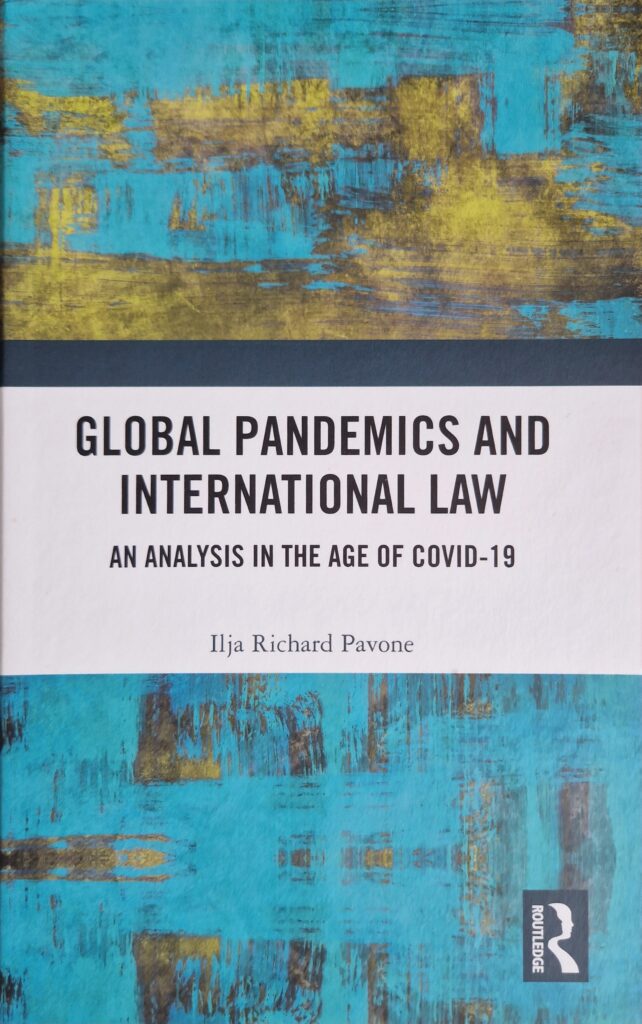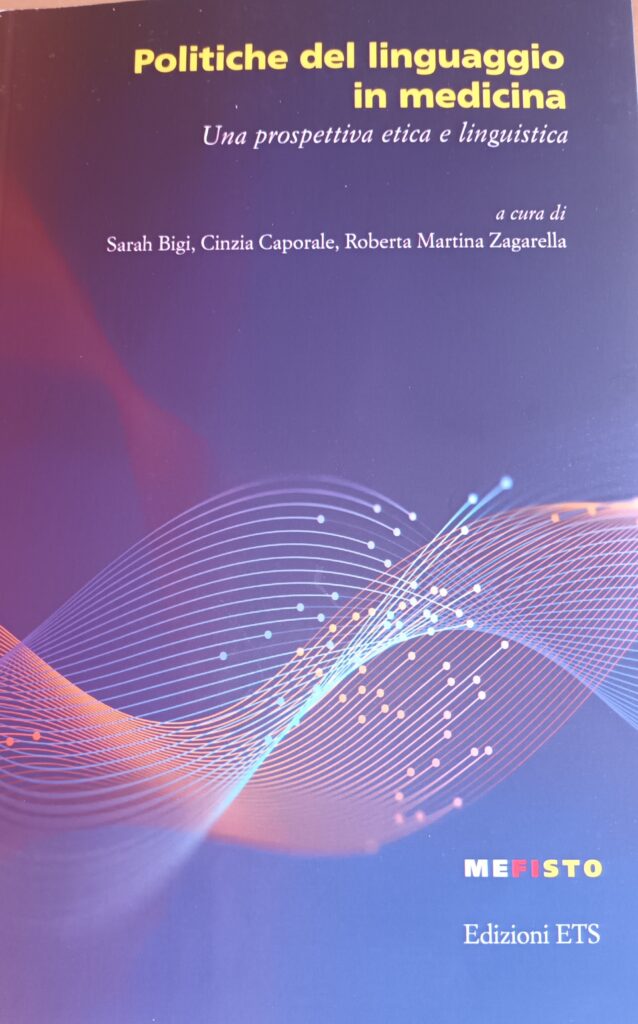2024
Dialogue on medically assisted suicide
Edited by Cinzia Caporale and Laura Palazzani
The new publication ‘Dialogue on medically assisted suicide’ by the Scientific Council of the Courtyard of the Gentiles, issued by Cnr Edizioni and edited by Cinzia Caporale and Laura Palazzani, is part of the current debate on medically assisted suicide that followed the Constitutional Court ruling no. 242/2019 and addresses the topic from a variety of perspectives with an interdisciplinary look. Giuliano Amato, in the introduction, writes:
‘Assisted suicide is an issue which offers strongly held and diverse opinions. They often have religious sources, but not exclusively. The paper published here observes, and specifically at its opening, that the difference between letting people die and helping them to die has epistemological sources and there is no voluntarism, of any kind, that can erase them. Of such, we of the Courtyard, are accustomed to acknowledging, it is indeed, almost always, our starting point; departure towards finding a meeting point, which does not sacrifice anyone’s opinion, but allows for convergence towards solutions, which in any case consider the views of everyone. This is what has happened this time, albeit with difficulties and doubts that remain open to further reflection. Certainly, we were united by our respect for each other’s principles […]. Yet, what allowed us to proceed in a common exploration […] was the shared willingness not to put them explicitly in the field when faced with circumstances where a very strong and strongly perceived common factor was and is for all of us dominant: human compassion, which is both a feeling of solidarity and a source of solidarity action.
In collaboration with the Scientific Council of the Courtyard of the Gentiles
Published by Cnr Edizioni
Global Pandemics and International Law
Edited by Ilja Richard Pavone
This book reviews the efficacy of Global Health Law, assessing why its legal framework based on the International Health Regulations did not represent a valid tool in the containment of modern global pandemics such as COVID-19. The book provides an introduction to the international legal framework surrounding epidemics and pandemics and the main global governance issues that have been generated by the COVID-19 outbreak. It highlights the main shortcomings of Global Health Law, while also including practical proposals to improve the WHO’s mechanism to prevent and respond to future disease outbreaks, such as the New Pandemic Treaty. Emphasis is placed on what has not worked in the international, regional and national responses to COVID-19. It is argued that the pandemic has shed light on the weaknesses of global and domestic health law. By identifying legal gaps and providing legal arguments, the book contributes to the historical and conceptual foundation as well as the practical development of international law in the new age of COVID-19, with the ultimate goal of stimulating legal reform in this vital new era. The work will be essential reading for academics, researchers and policy-makers working in International Law, Health Law, Environmental Law, Human Rights Law, Biolaw, and the Law of International Organizations.
Published by Routledge

2023
Artificial Intelligence: distingue frequenter. An interdisciplinary view
Edited by Cinzia Caporale and Laura Palazzani
The volume “Artificial Intelligence: distingue frequenter”, published by Cnr Edizioni and curated by Cinzia Caporale and Laura Palazzani, is the result of an in-depth study developed within the Scientific Council of the Courtyard of the Gentiles.
The paper addresses the topic of Artificial Intelligence from various perspectives with an interdisciplinary approach. Giuliano Amato, in the foreword, states: “In this small volume the reader will not find Luddite stances, nor any vade retro, towards innovation, and thus towards Artificial Intelligence itself. On the contrary, readers will see a unanimous acknowledgement of its formidable contribution to our progress in the most diverse fields. And yet they will also see a unanimous indication of possible and indeed necessary areas of limits, with the no less necessary clarification that some of these limits must be established by regulations, while others can only lie in the conscience of researchers. if all this is sufficiently shared, if society with its laws on the one hand, and research with its ethical code on the other, will be able to hold the torch entrusted to them, we shall confidently rely on AI: and avail ourselves of its benefits, do not dramatize our difficulties in distinguishing Schubert’s Unfinished Symphony from the one composed in part by the computer, and learn to recognise, by speaking to each other, whether students have written their papers or whether it was done by ChatGPT. It won’t be this that will carry us into those waters where, quoting our father Dante: “over us the booming billow closed”. Those waters are a still looming ahead and it is up to us, all of us, to prevent humanity from falling into them.”
Insights and curiosities: La Stampa, 22/05/2023
In collaboration with the Scientific Council of the Courtyard of the Gentiles
Published by Cnr Edizioni
The elephant in the room. Ethics of neglected diseases and poverty
Edited by Elena Mancini
Diseases, especially infectious ones, have always accompanied the history of mankind, profoundly changed economic structures and conditioning the social structure and cultural evolution of entire populations. This is still true for more than a billion people affected by endemic diseases in the tropical areas of the planet. Enormously favoured by poverty, they are in turn a major cause of poverty and one of the most insidious obstacles to development in large parts of Asia, Africa and Latin America. The volume is devoted to the ethical analysis of the social, cultural, political, and economic dimensions related to the spread of Neglected Tropical Diseases (NTDs), to the definition of ethical principles to guide the objectives and methodologies of intervention to combat NTDs, and to the proposal of governance models for a more concrete protection of the individual rights of an extraordinarily large number of patients. The volume is part of the research activities of the Centre for the Discovery of New Medicines for Rare, Neglected and Poverty Diseases project, coordinated by the CNCCS consortium (National Chemical Compounds Collection and Screening Centre).
Published by CNR Edizioni
2022
Pandemics and generativity. Children and adolescents at the time of Covid
Edited by Cinzia Caporale and Carla Collicelli
This volume is the product of an in-depth study that developed within the Scientific Council of the Courtyard of the Gentiles on the basis of the reflections that emerged from the volume published in 2020 “Pandemic and Resilience. The Person, the Community and Development Models after Covid-19″ (curated by Cinzia Caporale and Alberto Pirni), which has already received more than 100,000 downloads. This second volume addresses the pandemic from the perspective of the younger generations. Sixteen contributions are divided into the sections “Denatality”, “Youth Sociality at the Time of the Pandemic”, “What Future for the Young Generations” and “Ideas and Perspectives for Research, Medicine and Public Health”. Giuliano Amato wrote in the Introduction: ‘A contribution of our Consulta to issues of as much fundamental importance for all of us could not be completed without a powerful and compelling appeal to investments that do not pertain to public institutions and that are not investments in money. Intervening on denatality and the current and future wellbeing of the younger generations means convincingly investing in intergenerational solidarity and thus in a shared ethical obligation that must take on both a synchronic and diachronic, local and supra-local character. In an ideal perspective in which not only the so-called ‘young’ are required to behave responsibly towards the so-called ‘elderly’, but each individual, belonging to the most diverse age groups, is called upon to do something extra for himself and, at the same time, towards each other’.
In collaboration with the Scientific Council of the Courtyard of the
Gentiles
Published by CNR Edizioni
2021
This time it’s a zebra. Ethics of rare disease research
Edited by Elena Mancini
The volume was developed with funds from the project ‘Centre for research on new drugs for rare, neglected and poverty diseases’ coordinated by the CNCCS consortium.
The considerations proposed in this volume are the result of research activities carried out within the framework of the project resulting from an operational agreement between the National Research Council and the CNCCS consortium (National Chemical Compounds Collection and Screening Centre). The book is dedicated to an analysis of the ethical principles, legal provisions and governance tools to protect the rights of rare disease patients. This analysis follows a careful reconstruction of the context in which interventions to combat rare diseases take place, which includes the aspects that most affect patients’ life expectancy and quality of life. In particular, it examines the ethical aspects of drug development and clinical trials, health policies (European and national), scientific communication, the role of patient associations, and international initiatives to combat rare diseases.
Published by CNR Edizioni
2020
Language policies in medicine. An ethical and linguistic perspective
Edited by Sarah Bigi, Cinzia Caporale, Roberta Martina Zagarella
What is at stake in public communication on health issues? What are the reference values for a politics of language that includes in the dimension of care the “taking care of the words” used by us and directed to us? This volume is motivated by the need to bring forward the perspective of the language sciences in the debate concerning public communication on medical and scientific issues. The collected essays aim to consolidate critical reflection on the indispensable premises and fundamental characteristics that the area of health discourse should present. With a view to a common effort toward real word care, a decalogue of action items for the improvement of science and health communication is presented.
Published by Edizioni ETS, Collana MEFISTO

Pandemic and resilience. Person, community and development models after Covid-19
Edited by Cinzia Caporale e Alberto Pirni
The book is the product of a concerted and shared reflection that emerged and developed within the Scientific Council of the Courtyard of the Gentiles at an already advanced stage of the Covid-19 pandemic in our country. The paper is developed around a central text, the essay “Pandemic and Resilience. Person, community and development models after Covid-19′, and brings together numerous voices that, from the immediacy of internal discussion and confrontation, have consolidated in the form of short written contributions in an attempt to understand and, at the same time, counterpoint what has happened and is still happening.
In collaboration with the Scientific Council of the Courtyard of the Gentiles
Published by CNR Edizioni
The Editorial Board is composed of Giorgia Adamo (Responsible), Tiziana Ciciotti, Paola Grisanti, Emiliano Liberatori and Elena Mancini